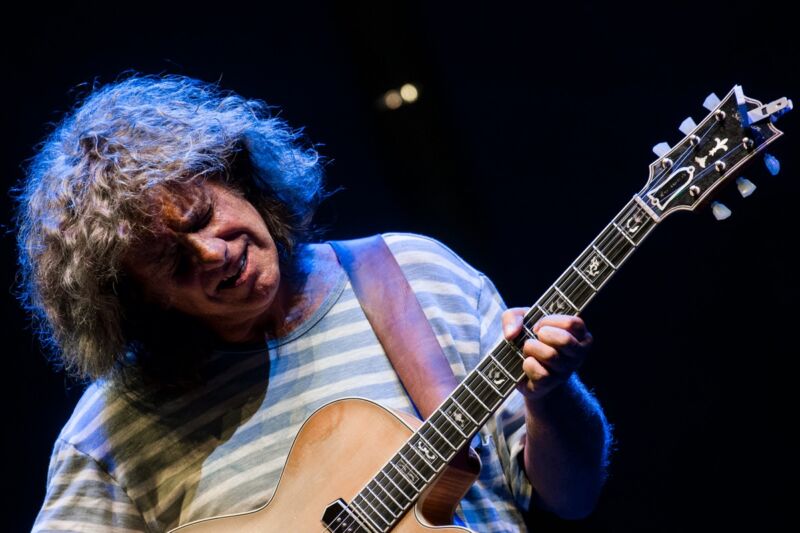Study with jazz improv musicians sheds light on creativity and the brain

Enlarge / Popular myth associates creativity with the right side of the brain, but expert jazz musicians, like Pat Metheny, may actually rely more on the left side of the brain when improvising. (credit: Roberto Panucci/Corbis/Getty Images)
There's a popular myth that divides people into "left brain" and "right brain" categories, whereby the former are analytical and logical, while the latter are creative and innovative. The reality, of course, is much more complicated than that, and a new brain-imaging study of improvisational jazz guitarists is a useful case in point. Researchers at Drexel University found that while the right hemisphere is associated with creativity in fairly inexperienced jazz musicians, experts with high mastery of improvisational skills actually rely primarily on the left hemisphere of the brain. They described their results in a recent paper in the journal NeuroImage.
Co-author David Rosen is a musician and scientist who started playing the piano at age eight before picking up the bass guitar in high school. (Rosen's band, Nakama, has just released a new EP, for those looking to explore some new musical vibes while we're all under isolation orders.) Because improvisation-defined as "the spontaneous invention of melodic solo lines or accompaniment parts"-is a defining feature of jazz, Rosen thought it would provide an excellent opportunity to explore the brain's role not just in creativity, but more broadly in musical perception and expression.
"I think there are a lot of interesting questions to ask about [musical] perception, both for people who are listening to music and people who are performing music," Rosen told Ars. "The brain is the part that makes us most human and lets us feel those emotions. It's almost not possible to quantify the altered state we get into when we're performing or listening to the music we like the most and that means the most to us as individuals. Ultimately, we're trying to ask very focused scientific questions about pieces of what it means to share in that musical experience."
Read 16 remaining paragraphs | Comments